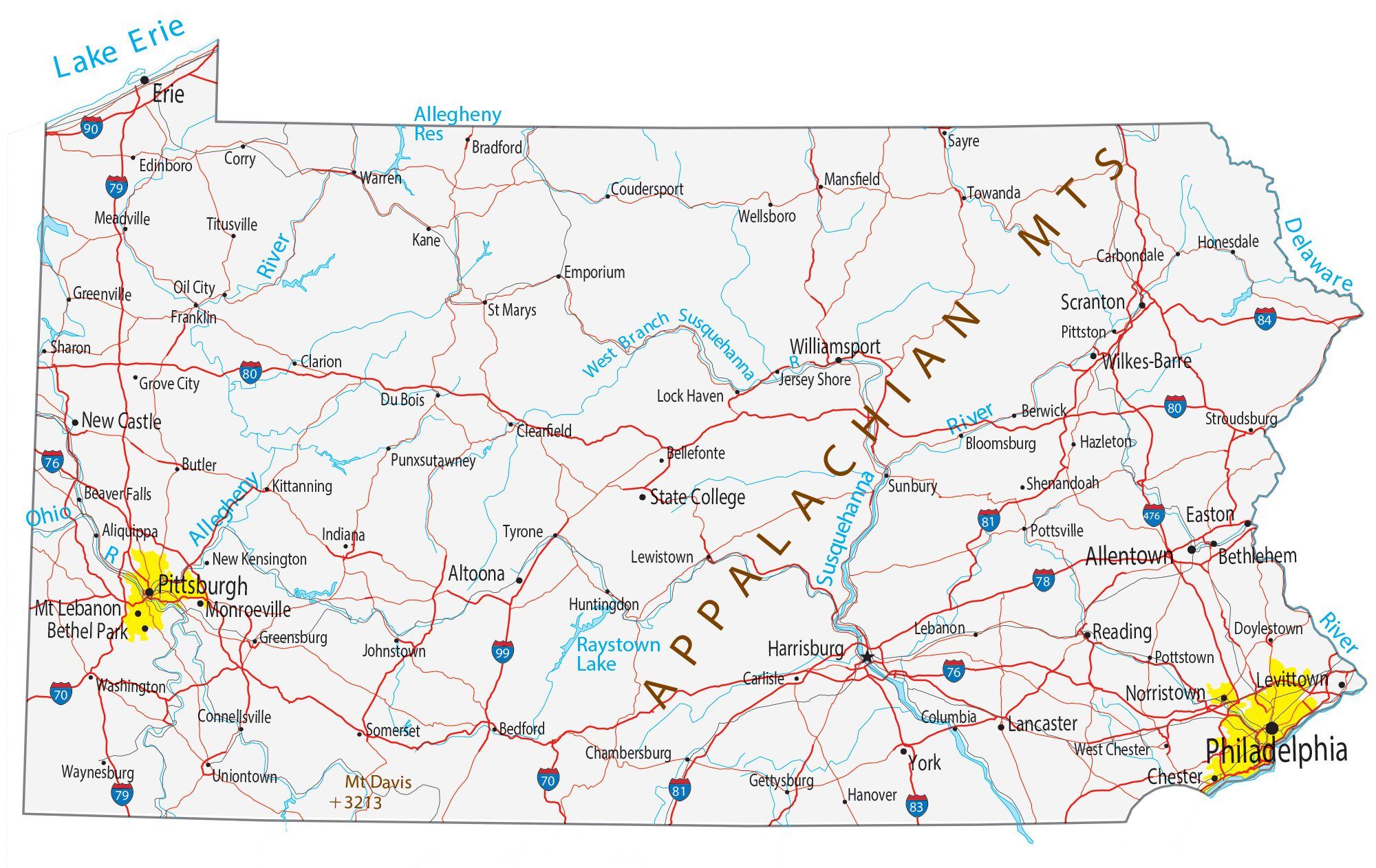Understanding the regulations governing septic systems in Pennsylvania ensures compliance, prevents costly penalties, and protects the environment. In this guide, we cover everything you need to know about installation permits, tank sizing, wastewater disposal, compliance guidelines, and costs. Let’s break down the essential details about Pennsylvania septic system regulations.
Table of Contents
- State-Specific Regulations Information
- Septic Tank Size and Placement
- Wastewater Disposal
- Compliance Information
- Cost Information
- Local Resources & Contact Information
- Supportive Resources
State-Specific Regulations Information
Installation Permits
Installing a septic system in Pennsylvania requires adherence to specific permit regulations set by the Pennsylvania health department. Yes, a permit is mandatory for any septic system installation. These permits ensure that the system complies with local wastewater management and environmental protection guidelines.
Permit Costs
The cost of a Pennsylvania septic permit can vary. Typically, the permit fee ranges from $100 to $500, depending on the system size and location. The application fee helps cover administrative costs and inspections. Before applying, it’s important to contact your local health department for the exact cost and required documentation.
Application Requirements
To apply for a Pennsylvania septic permit, you’ll need:
- A site plan showing the location of the system
- Proof of property ownership
- Plans detailing system specifications
- Information about drain field placement
Failure to secure a permit before installation could result in fines or mandatory system removal. Make sure all documents are accurate and submitted according to local health department guidelines.
Septic Tank Size and Placement
Pennsylvania has guidelines regarding septic tank sizing and drain field placement to protect public health and the environment. These guidelines ensure that systems function efficiently and comply with state health department rules.
Tank Size Requirements
The size of your septic tank depends on the number of bedrooms in your home. In Pennsylvania, the general guidelines are:
- A 1,000-gallon tank is recommended for homes with up to 3 bedrooms
- Larger homes (4+ bedrooms) typically require a 1,500-gallon tank or more
The Pennsylvania health department provides clear specifications based on household size and wastewater flow.
Drain Field Placement
Drain fields should be placed in a location that minimizes risks to the environment and local groundwater. Key placement considerations include:
- A minimum setback distance of 100 feet from private water sources
- Adequate soil conditions to prevent contamination
- Compliance with local zoning laws and environmental guidelines
Working with a certified Pennsylvania septic installation professional will help ensure proper placement and adherence to all local regulations.
Wastewater Disposal
Pennsylvania wastewater disposal is governed by strict environmental and health guidelines. Wastewater must be properly treated and disposed of to prevent contamination of nearby soil and water sources.
Disposal Methods
In most cases, wastewater disposal involves an on-site system, like a septic tank and drain field. Pennsylvania’s wastewater management regulations mandate that all wastewater flows undergo proper treatment before discharge. Certified septic systems must comply with Pennsylvania environmental protection guidelines to safeguard public health and the environment.
Wastewater Regulations Overview
The Pennsylvania health department sets wastewater disposal rules to:
- Prevent groundwater contamination
- Ensure safe disposal of waste
- Adhere to EPA and local wastewater management policies
Failing to meet these wastewater disposal regulations can result in penalties and legal action. It’s crucial to follow all local health department recommendations to maintain compliance.
Compliance Information
Potential Fines and Penalties
If you do not follow Pennsylvania septic system regulations, you could face significant fines and legal penalties. Compliance with state laws is necessary to prevent these outcomes.
- Fines: Penalties for non-compliance can range from $500 to $5,000, depending on the violation’s severity.
- Legal Consequences: The local health department or environmental protection agency may require system removal or costly repairs.
- Environmental Protections: Pennsylvania’s strict environmental guidelines ensure that septic systems do not harm groundwater, soil, or nearby ecosystems.
Understanding these penalties highlights the importance of working with state-certified septic service providers familiar with Pennsylvania septic system installation and maintenance rules.
Environmental Protections Unique to Pennsylvania
Pennsylvania has specific environmental protections that go beyond standard wastewater regulations. These include:
- Groundwater Protection Regulations: Strict measures to prevent contamination of wells and nearby water sources.
- Soil Composition Guidelines: Recommendations for selecting locations with appropriate soil conditions for drain fields.
- Wildlife and Environmental Conservation Laws: Rules that safeguard local ecosystems and biodiversity.
Compliance with these environmental protections ensures that septic systems do not negatively impact Pennsylvania’s natural resources.
Cost Information
Typical Costs for Services Related to Septic Maintenance and Installation in Pennsylvania
When installing or maintaining a septic system in Pennsylvania, it’s helpful to understand the associated costs. Here’s a breakdown of common expenses:
Permit Fees
Permit fees for septic installation in Pennsylvania typically range from $100 to $500. Costs may vary based on the project location and system size.
Pumping Costs
Regular septic tank pumping is crucial for maintaining system efficiency. In Pennsylvania, the cost for septic tank pumping services is usually between $250 and $500. The frequency of pumping depends on the tank size and household usage.
Installation Estimates
The cost of installing a new septic system in Pennsylvania ranges between $3,000 and $10,000, depending on the system’s size and location. Factors that affect the cost include:
- Soil composition
- Drain field placement
- Site accessibility
- Type of septic system installed
Hiring a certified Pennsylvania septic installation company ensures proper installation and compliance with all state regulations.
Local Resources & Contact Information
State Agencies Responsible for Septic Systems
Several Pennsylvania agencies oversee septic system regulations:
- Pennsylvania Health Department
- Responsible for septic installation permits and inspections
- Provides guidelines to protect public health and the environment
- Pennsylvania Environmental Protection Agency
- Focuses on wastewater management and environmental compliance
- Establishes regulations to protect groundwater and soil
Health Department and Environmental Protection Agency Websites
- Pennsylvania Department of Environmental Protection: www.dep.pa.gov
- Pennsylvania Health Department: www.health.pa.gov
Contact Information for Certified Septic Service Professionals
Look for local service companies that offer:
- Septic tank installation
- Maintenance and pumping services
- Compliance inspections according to Pennsylvania health department guidelines
Many local businesses have websites and contact numbers listed on Google, Yelp, or other service directories.
Supportive Resources
Government Health Department Websites
- Pennsylvania Department of Environmental Protection offers comprehensive guides and FAQs about wastewater management and septic systems.
Local Environmental Protection Agencies
- Resources and contact details for state-certified professionals are available through local environmental protection agencies.
Downloadable Handbooks and Infographics
Many websites offer free, downloadable materials to help homeowners with:
- Proper septic system maintenance
- Wastewater disposal guidelines
- Visual infographics explaining installation and compliance requirements
These tools are invaluable in helping homeowners adhere to Pennsylvania wastewater management regulations.
Conclusion
Navigating Pennsylvania septic system regulations requires understanding permits, tank placement guidelines, wastewater disposal rules, and compliance expectations. Adhering to Pennsylvania’s environmental and health department regulations protects the environment and ensures public health safety. Always consult local certified professionals and health departments for accurate information and services. Investing in proper septic system installation and maintenance not only ensures compliance but also saves money in the long run. With the right knowledge and professional guidance, you can maintain a reliable and compliant septic system in Pennsylvania.
DIY Repairs Are Always Cheaper
Septic Regulations in Rural Areas: Essential Guide for Rural Property Owners
The Role of Perforated Pipes in Drain Fields
What Happens During a Pumping Service?
Septic Tanks vs. Sewer Systems | Choosing the Right Option
Directory | Virginia Septic Service Providers | Part 2







